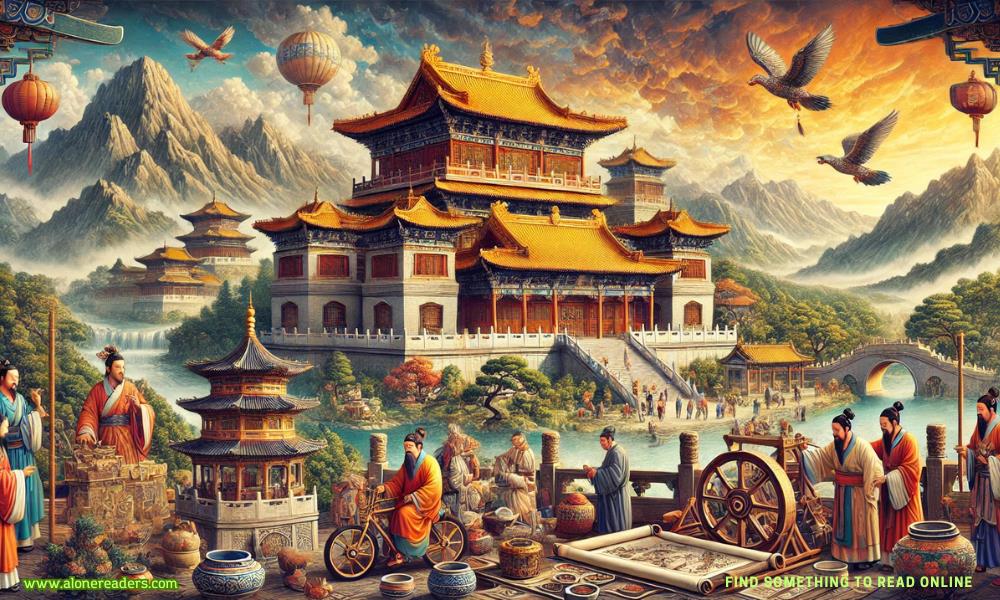Page 1 of Personal (Jack Reacher 19)
ONE
EIGHT DAYS AGO my life was an up and down affair. Some of it good. Some of it not so good. Most of it uneventful. Long slow periods of nothing much, with occasional bursts of something. Like the army itself. Which is how they found me. You can leave the army, but the army doesn’t leave you. Not always. Not completely.
They started looking two days after some guy took a shot at the president of France. I saw it in the paper. A long-range attempt with a rifle. In Paris. Nothing to do with me. I was six thousand miles away, in California, with a girl I met on a bus. She wanted to be an actor. I didn’t. So after forty-eight hours in LA she went one way and I went the other. Back on the bus, first to San Francisco for a couple of days, and then to Portland, Oregon, for three more, and then onward to Seattle. Which took me close to Fort Lewis, where two women in uniform got out of the bus. They left an Army Times behind, one day old, right there on the seat across the aisle.
The Army Times is a strange old paper. It started up before World War Two and is still going strong, every week, full of yesterday’s news and sundry how-to articles, like the headline staring up at me right then: New Rules! Changes For Badges And Insignia! Plus Four More Uniform Changes On The Way! Legend has it the news is yesterday’s because it’s copied secondhand from old AP summaries, but if you read the words sideways you sometimes hear a real sardonic tone between the lines. The editorials are occasionally brave. The obituaries are occasionally interesting.
Which was my sole reason for picking up the paper. Sometimes people die and you’re happy about it. Or not. Either way you need to know. But I never found out. Because on the way to the obituaries I found the personal ads. Which as always were mostly veterans looking for other veterans. Dozens of ads, all the same.
Including one with my name in it.
Right there, centre of the page, a boxed column inch, five words printed bold: Jack Reacher call Rick Shoemaker.
Which had to be Tom O’Day’s work. Which later on made me feel a little lame. Not that O’Day wasn’t a smart guy. He had to be. He had survived a long time. A very long time. He had been around for ever. Twenty years ago he already looked a hundred. A tall, thin, gaunt, cadaverous man, who moved like he might collapse at any moment, like a broken stepladder. He was no one’s idea of an army general. More like a professor. Or an anthropologist. Certainly his thinking had been sound. Reacher stays under the radar, which means buses and trains and waiting rooms and diners, which, coincidentally or not, is the natural economic habitat for enlisted men and women, who buy the Army Times ahead of any other publication in the PX, and who can be relied upon to spread the paper around, like birds spread seeds from berries.
And he could rely on me to pick up the paper. Somewhere. Sooner or later. Eventually. Because I needed to know. You can leave the army, but the army doesn’t leave you. Not completely. As a means of communication, as a way of making contact, from what he knew, and from what he could guess, then maybe he would think ten or twelve consecutive weeks of personal ads might generate a small but realistic chance of success.
But it worked the first time out. One day after the paper was printed. Which is why I felt lame later on.
I was predictable.
Rick Shoemaker was Tom O’Day’s boy. Probably his second in command by now. Easy enough to ignore. But I owed Shoemaker a favour. Which O’Day knew about, obviously. Which was why he put Shoemaker’s name in his ad.
And which was why I would have to answer it.
Predictable.
Seattle was dry when I got out of the bus. And warm. And wired, in the sense that coffee was being consumed in prodigious quantities, which made it my kind of town, and in the sense that wifi hotspots and handheld devices were everywhere, which didn’t, and which made old-fashioned street-corner pay phones hard to find. But there was one down by the fish market, so I stood in the salt breeze and the smell of the sea, and I dialled a toll-free number at the Pentagon. Not a number you’ll find in the phone book. A number learned by heart long ago. A special line, for emergencies only. You don’t always have a quarter in your pocket.
The operator answered and I asked for Shoemaker and I got transferred, maybe elsewhere in the building, or the country, or the world, and after a bunch of clicks and hisses and some long minutes of dead air Shoemaker came on the line and said, ‘Yes?’
‘This is Jack Reacher,’ I said.
‘Where are you?’
‘Don’t you have all kinds of automatic machines to tell you that?’
‘Yes,’ he said. ‘You’re in Seattle, on a pay phone down by the fish market. But we prefer it when people volunteer the information themselves. We find that makes the subsequent conversation go better. Because they’re already cooperating. They’re invested.’
‘In what?’
‘In the conversation.’
‘Are we having a conversation?’
‘Not really. What do you see directly ahead?’
I looked.
‘A street,’ I said.
‘Left?’
‘Places to buy fish.’
‘Right?’
‘A coffee shop across the light.’
‘Name?’
I told him.
He said, ‘Go in there and wait.’
‘For what?’
‘For about thirty minutes,’ he said, and hung up.
No one really knows why coffee is such a big deal in Seattle. It’s a port, so maybe it made sense to roast it close to where it was landed, and then to sell it close to where it was roasted, which created a market, which brought other operators in, the same way the auto makers all ended up in Detroit. Or maybe the water is right. Or the elevation, or the temperature, or the humidity. But whatever, the result is a coffee shop on every block, and a four-figure annual tab for a serious enthusiast. The shop across the light from the pay phone was representative. It had maroon paint and exposed brick and scarred wood, and a chalkboard menu about 90 per cent full of things that don’t really belong in coffee, like dairy products of various types and temperatures, and weird nut-based flavourings, and many other assorted pollutants. I got a plain house blend, black, no sugar, in the middle-sized go-cup, not the enormous grande bucket some folks like, and a slab of lemon pound cake to go with it, and I sat alone on a hard wooden chair at a table for two.
The cake lasted five minutes and the coffee another five, and eighteen minutes after that Shoemaker’s guy showed up. Which made him navy, because twenty-eight minutes was pretty fast, and the navy is right there in Seattle. And his car was dark blue. It was a low-spec domestic sedan, not very desirable, but polished to a high shine. The guy himself was nearer forty than twenty, and hard as a nail. He was in civilian clothes. A blue blazer over a blue polo shirt, and khaki chino pants. The blazer was worn thin and the shirt and the pants had been washed a thousand times. A Senior Chief Petty Officer, probably. Special Forces, almost certainly, a SEAL, no doubt part of some shadowy joint operation watched over by Tom O’Day.
He stepped into the coffee shop with a blank-eyed all-in-one scan of the room, like he had a fifth of a second to identify friend or foe before he started shooting. Obviously his briefing must have been basic and verbal, straight out of some old personnel file, but he had me at six-five two-fifty. Everyone else in the shop was Asian, mostly women and very petite. The guy walked straight towards me and said, ‘Major Reacher?’
I said, ‘Not any more.’
He said, ‘Mr Reacher, then?’
I said, ‘Yes.’
‘Sir, General Shoemaker requests that you come with me.’
I said, ‘Where to?’
/> ‘Not far.’
‘How many stars?’
‘Sir, I don’t follow.’
‘Does General Shoemaker have?’
‘One, sir. Brigadier General Richard Shoemaker, sir.’
‘When?’
‘When what, sir?’
‘Did he get his promotion?’
‘Two years ago.’
‘Do you find that as extraordinary as I do?’
The guy paused a beat and said, ‘Sir, I have no opinion.’
‘And how is General O’Day?’
The guy paused another beat and said, ‘Sir, I know of no one named O’Day.’
The blue car was a Chevrolet Impala with police hubs and cloth seats. The polish was the freshest thing on it. The guy in the blazer drove me through the downtown streets and got on I-5 heading south. The same way the bus had come in. We drove back past Boeing Field once again, and past the Sea-Tac airport once again, and onward towards Tacoma. The guy in the blazer didn’t talk. Neither did I. We both sat there mute, as if we were in a no-talking competition and serious about winning. I watched out the window. All green, hills and sea and trees alike.
We passed Tacoma, and slowed ahead of where the women in uniform had gotten out of the bus, leaving their Army Times behind. We took the same exit. The signs showed nothing ahead except three very small towns and one very large military base. Chances were therefore good we were heading for Fort Lewis. But it turned out we weren’t. Or we were, technically, but we wouldn’t have been back in the day. We were heading for what used to be McChord Air Force Base, and was now the aluminium half of Joint Base Lewis-McChord. Reforms. Politicians will do anything to save a buck.
I was expecting a little back-and-forth at the gate, because the gate belonged jointly to the army and the air force, and the car and the driver were both navy, and I was absolutely nobody. Only the Marine Corps and the United Nations were missing. But such was the power of O’Day we barely had to slow the car. We swept in, and hooked a left, and hooked a right, and were waved through a second gate, and then the car was right out there on the tarmac, dwarfed by huge C-17 transport planes, like a mouse in a forest. We drove under a giant grey wing and headed out over open blacktop straight for a small white airplane standing alone. A corporate thing. A business jet. A Lear, or a Gulfstream, or whatever rich people buy these days. The paint winked in the sun. There was no writing on it, apart from a tail number. No name, no logo. Just white paint. Its engines were turning slowly, and its stairs were down.
The guy in the blazer drove a well-judged part-circle and came to a stop with my door about a yard from the bottom of the airplane steps. Which I took as a hint. I climbed out and stood a moment in the sun. Spring had sprung and the weather was pleasant. Beside me the car drove away. A steward appeared above me, in the little oval mouth of the cabin. He was wearing a uniform. He said, ‘Sir, please step up.’
The stairs dipped a little under my weight. I ducked into the cabin. The steward backed off to my right, and on my left another guy in uniform squeezed out of the cockpit and said, ‘Welcome aboard, sir. You have an all-air force crew today, and we’ll get you there in no time at all.’
I said, ‘Get me where?’
‘To your destination.’ The guy crammed himself back in his seat next to his co-pilot and they both got busy checking dials. I followed the steward and found a cabin full of butterscotch leather and walnut veneer. I was the only passenger. I picked an armchair at random. The steward hauled the steps up and sealed the door and sat down on a jump seat behind the pilots’ shoulders. Thirty seconds later we were in the air, climbing hard.
TWO
I FIGURED WE turned east out of McChord. Not that there was much of a choice. West was Russia and Japan and China, and I doubted such a small plane had that kind of range. I asked the steward where we were going, and he said he hadn’t seen the flight plan. Which was obvious bullshit. But I didn’t push it. He turned out to be a chatty guy on every other subject. He told me the plane was a Gulfstream IV, confiscated from a bent hedge fund during a federal proceeding, and reissued to the air force for VIP transportation. In which case air force VIPs were lucky people. The plane was terrific. It was quiet and solid, and the armchairs were sensational. They adjusted every which way. And there was coffee in the galley. A proper drip machine. I told the guy to keep it going, but that I would go back and forth myself, for refills. He appreciated that. I think he took it as a mark of respect. He wasn’t really a steward, obviously. He was some kind of a security escort, tough enough to get the job, and proud I knew it.
I watched out the window, first at the Rockies, which had dark green trees low down and blinding white snow high up. Then came the tawny agricultural plains, in tiny mosaic fragments, ploughed and sown and harvested, over and over again, and not rained on much. By the look of the land I figured we clipped the corner of South Dakota and saw a bit of Nebraska before setting out over Iowa. Which because of the geometric complexities of high-altitude flight meant we were likely aiming some ways south. A Great Circle route. Weird on a flat paper map, but just right for a spherical planet. We were going to Kentucky, or Tennessee, or the Carolinas. Georgia, even.
We droned on, hour after hour, two full pots of coffee, and then the ground got a little closer. At first I thought it was Virginia, but then I figured it was North Carolina. I saw two towns that could only be Winston-Salem and Greensboro. They were on the left, and receding a little. Which meant we were heading southeast. No towns until Fayetteville. But just before that came Fort Bragg. Which was where Special Forces HQ was located. Which was Tom O’Day’s natural economic habitat.
Wrong again. Or right, technically, but in name only. We landed in the evening dark at what used to be Pope Air Force Base, which had since been given away to the army. Now it was just Pope Field, just a small corner of an ever-bigger Fort Bragg. Reforms. Politicians will do anything to save a buck.
We taxied a long time, tiny on tarmac big enough for airlift squadrons. Eventually we stopped near a small administrative building. I saw a sign that said 47th Logistics, Tactical Support Command. The engines shut down and the steward opened the hatch and lowered the steps.
‘Which door?’ I said.
‘The red one,’ he said.
I went down and walked ahead through the dark. There was only one red door. It opened when I was six feet from it. A young woman in a black skirt suit came out. Dark nylons. Good shoes. A very young woman. She had to be still in her twenties. She had blonde hair and green eyes and a heart-shaped face. Which had a big warm welcoming smile on it.
She said, ‘I’m Casey Nice.’
I said, ‘Casey what?’
‘Nice.’
‘I’m Jack Reacher.’
‘I know. I work for the State Department.’
‘In D.C.?’
‘No, here,’ she said.
Which made some kind of sense. Special Forces were the armed wing of the CIA, which was the hands-on wing of the State Department, and some decisions would require all three fingers in the same pie all at once. Hence her presence on the base, young as she was. Maybe she was a policy genius. Some kind of a prodigy. I said, ‘Is Shoemaker here?’
She said, ‘Let’s go inside.’
She led me to a small room with a wired glass window. It had three armchairs in it, none of them matching, all of them a little sad and abandoned. She said, ‘Let’s sit down.’
I said, ‘Why am I here?’
She said, ‘First you must understand everything you hear from this point onward is a classified secret. There will be a severe penalty for a breach of security.’
‘Why would you trust me with secrets? You never met me before. You know nothing about me.’
‘Your file has been circulated. You had a security clearance. It was never revoked. You’re still bound by it.’
‘Am I free to leave?’
‘We’d prefer you to stay.’
‘Why?’
‘We want to
talk to you.’
‘The State Department?’
‘Did you agree the part about classified secrets?’
I nodded. ‘What does the State Department want with me?’
‘We have certain obligations.’
‘In what respect?’
‘Someone took a shot at the president of France.’
‘In Paris.’
‘The French have appealed for international cooperation. To find the perpetrator.’
‘It wasn’t me. I was in LA.’
‘We know it wasn’t you. You’re not on the list.’
‘There’s a list?’
She didn’t answer that, except to reach high up between her jacket and her blouse and pull out a folded sheet of paper, which she handed to me. It was warm from her body, and slightly curved. But it wasn’t a list. It was a summary report from our embassy in Paris. From the CIA Head of Station, presumably. The nuts and bolts of the thing.
- Praise Me: Princess by Jessa Kane
- Animal Instincts by Jenika Snow
- Captured By the Bratva by Ava Gray
- Devlin by Winter Sloane
- Cruel Honor by Ivy Davis
- Playing With Fire by Emily Hayes
- The Ballerina by Jade Marshall
- Frat House Fling by Stephanie Brother
- Use Me, Daddy by Sara Fields
- Snowy Secrets by Ajme Williams
- Fierce-Michael by Natalie Ann
- Forever His This Christmas by Rosa Mink
- Trust Me With Forever by Kayla Chase
- She's Got that Fire by Haley Travis
- Savage Mountain Man by Lilah Hart
- The Way You Hurt Me by Emm Darcy







